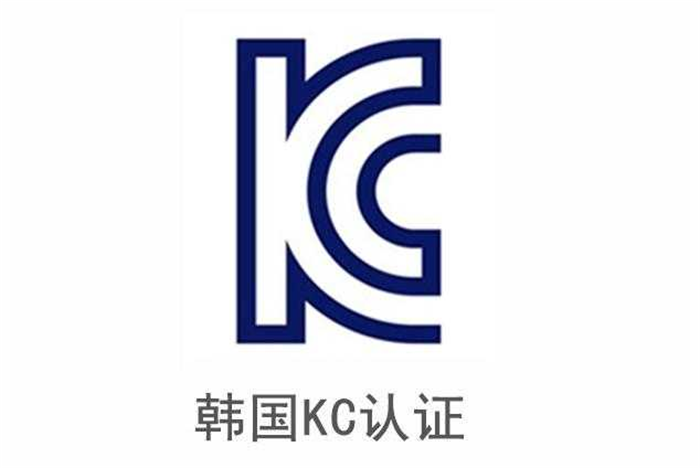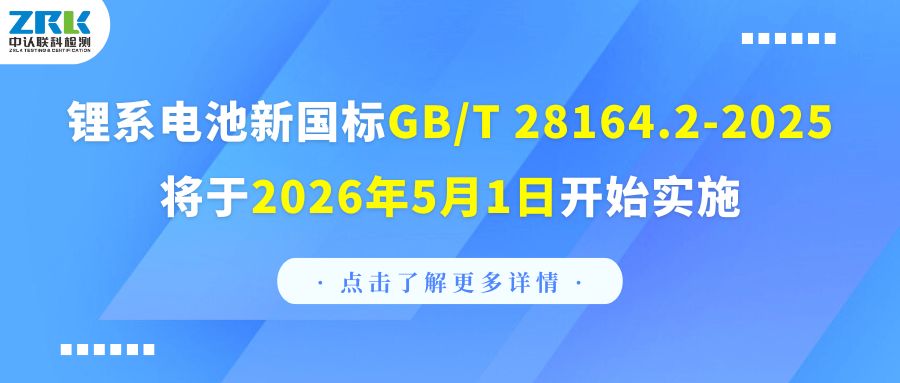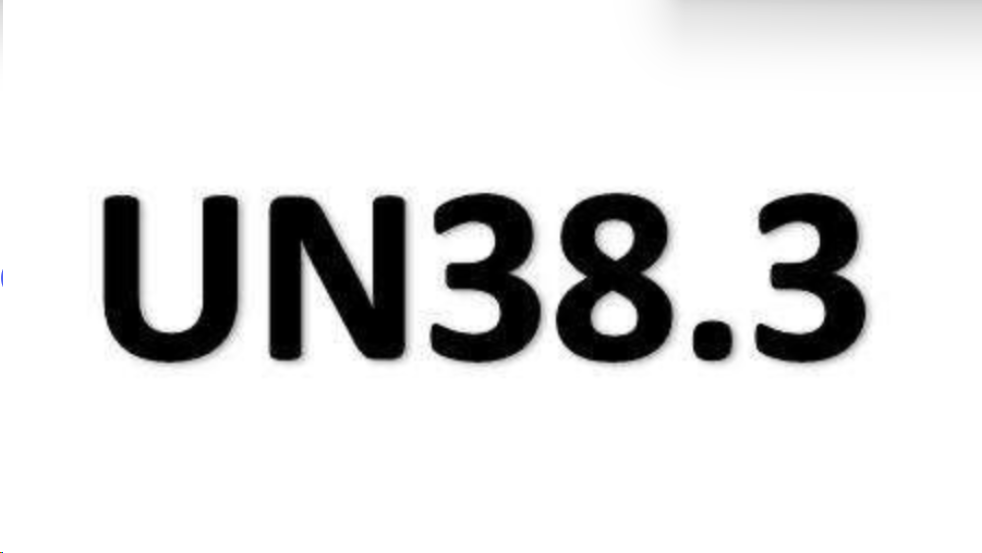There are many types of batteries, including rechargeable batteries, disposable batteries, button batteries, and solar batteries. Although the battery is inconspicuous, it still has a high safety risk. There are many items that need to be tested during battery detection, especially when the battery is exported to foreign countries for IEC certification standards, the battery safety indicators need to be tested to ensure The batteries that everyone is using and exporting will not cause hidden safety hazards and malfunctions for users. Safe and high-quality batteries will not only be popular in the country, but also quickly open up foreign markets and become popular in foreign markets. If you want to successfully sell batteries abroad, you must know what the battery's IEC certification standards are?

The battery items include:
1.UN38.3 test
2. MSDS report
3. Wercs registration
4. Air transport appraisal report
5. Maritime identification report.
The battery's IEC certification standards mainly include the testing and verification of the following items:
Cell: continuous low-rate charging, vibration, temperature cycling, external short circuit, free fall, shock (collision), thermal misuse (thermal shock), squeeze, low air pressure, overcharge, forced discharge, high rate charge protection Function (lithium system), labeling and packaging, correct installation (nickel system).
Battery: Vibration, shell stress at high temperature, temperature cycling, external short circuit, drop, impact (collision), marking and packaging, overcharge (nickel system).
In addition to the battery product certification standards, the battery certification standards must also meet the requirements defined by the battery's IEC certification standard IEC 62133. That is, the CB verification of the rechargeable battery must meet both the IEC certification standards IEC 60950 and IEC 62133.
The process of making batteries and batteries is relatively complicated. Battery manufacturers need to understand the details of the standard before testing and verification and control it in production to avoid delays in testing because they do not meet the requirements of the IEC 62133 standard.
For more information about the battery IEC certification standards, you can call ZRLK for detailed inquiries, and professional engineers will answer your questions online. ZRLK has been focusing on the testing and certification of batteries and peripheral consumer products for 15 years, always paying attention to the changes of laws and regulations in various countries, and providing customers with one-stop certification services in multiple countries and regions to ensure that your products quickly enter the target market. If you have requirements for battery testing and certification, you can call ZRLK to inquire about related services.



![[Holiday Notice] ZRLK 2026 Chinese New Year Holiday Schedule](/uploads/image/202602/698559be66d97.jpg)










